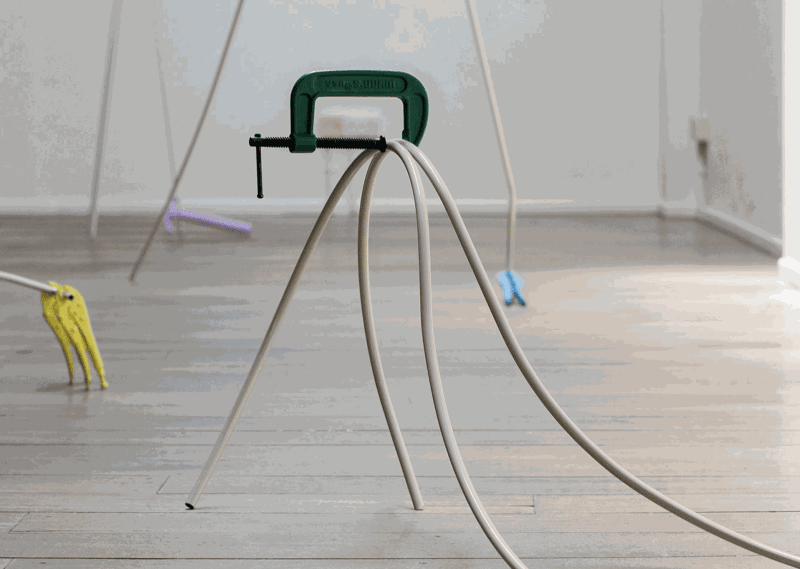"We circle back to the idea of waking up later on, when Aki reads me a quote from Sara Ahmed’s Queer Phenomenology: Orientations, Objects, Others. (In writing this essay, I look up the blurb for this text. It reads: Focusing on the “orientation” aspect of “sexual orientation” and the “orient” in “orientalism,” [...] Being “orientated” means feeling at home, knowing where one stands, or having certain objects within reach. So I think again of holder, held, holding, handle, handler…)
“Moments of disorientation are vital,” Aki recites from the chapter on disorientation. “They are bodily experiences that throw the world up or throw the body from its ground.”
It is interesting that Aki brings this up, because waking up can be a moment of disorientation. One is transiting between two states, between sleeping and waking. It is such a visceral thing—I can feel it in my own body, in the space between my shoulder blades, in the drooping of my eyelids even hours after I have rolled out of bed. I see it reflected in the metal forms beside us, in abstract form and line. It has such a relationship to the way our body moves, I say to Aki, in the particular way you’re trying to translate it. It’s figurative without being figurative.
Aki nods thoughtfully. “I’ve been thinking about the word 'figurative' a lot,” they say. “I do think about the body quite a lot. But I think I’m more interested in the descriptive words, the vocabularies in relation to bodies. Instead of saying I’m trying to depict the body, I would say my objects are bodily. Adjacent to. Not necessarily 'body', but 'bodily'.”
Still, Aki qualifies, there are certain things that they do rely on their body for. “I do reference my fatness—the way things bulge, the way I relate to a straight line.” (I feel the heft of my own bulges now, the skin that stretches over my stomach.) “But besides that, I wouldn’t say the objects are a direct reference to any one body.”

